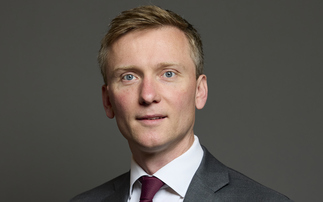PP speaks to Dalriada Trustees' Hugh Nolan about his views on the CMA's review into the investment consultant and fiduciary management markets.
Professional Pensions has interviewed some of the industry's leading independent trustees - asking them for their views on the Competition and Markets Authority's (CMA's) review and the remedies it has set out.
In the second part of this Q&A series, PP speaks to Dalriada Trustees' Hugh Nolan…
PP: Do you think that the CMA investigation addresses legitimate concerns?
Nolan: No. I don't think it was necessary. I think it's perfectly possible, and always has been, for trustees to manage that situation, if they chose to do so. There are firms who don't partake in fiduciary management themselves - to deliberately keep themselves impartial - who would be able either to help select or monitor a fiduciary manager.
If you've got a manager and you're happy with their performance, then going through a tender process, while it might be best practice, can be a pretty meaningless exercise. The idea of tendering just for the sake of it seems to me to be a little excessive.
PP: The CMA's report said that half of fiduciary mandates were with the investment consultant - do trustees have enough transparency to make an informed selection decision at tender?
Nolan: I think that the information is available, if trustees want it.
PP: What do you think of the different flavours of fiduciary management - AM-FM (asset management fiduciary managers), IC-FM(investment consultant fiduciary managers), and pure FM? Do you agree that each has different skills?
Nolan: Yes absolutely. I think it's horses for courses.
PP: Are schemes without a professional trustee more vulnerable than those who do work with professional trustees?
Nolan: Even if they haven't got a separate firm from their advisers, they'll have their own scheme lawyers and auditors - so there would be a number of professionals who could be able to tell trustees if they felt that there was something not quite right. I fully accept the CMA's view that there are some issues. My concern would be whether this was the right way to approach it. The idea that you have to be a professional trustee to suggest that, if you're doing a pitch for investment management for a £100m fund, you should perhaps look at more than one provider isn't one that I have a lot of sympathy for, though I accept that it happens sometimes.
PP: It sounds like you're saying that a lot of these proposals are surplus to requirements?
Nolan: I don't think that these proposals will cause a backwards step for schemes. For me, as see it very much as encouraging best practice. One of the benefits that has stood previously is that, if trustees are sold on the benefits of fiduciary management, and then they say ‘yeah, can you please do that for us' they would have made those changes very quickly. If they then have to go through a huge parade with several providers and consider the pros and cons, which is a challenging issue to do anyway, then you're talking about perhaps at least another six months, maybe 12 months. A trustee board might be struggling with issues about funding or Brexit or whatever it might be. Then the idea of boosting investment by going through the fiduciary route might fall to the bottom of the pile, if it becomes a long process.
PP: Will transparency still be an issue?
Nolan: It can be quite hard to know what you're getting. For example, a high turnover rate in a portfolio of assets might reflect a churning and an unnecessary cost, but it could simply reflect an active approach by the manager to get opportunities and make the most of that.
PP: Are there any changes you would like to make?
Nolan: The one thing that is missing from the industry at the moment is active monitoring of fiduciary managers independently.
PP: What do you think fiduciary managers can do to help pension schemes, post the CMA review?
Nolan: I think transparency is the key, so the more that fees charges are standard and transparent, the more that trustees know what other people are being charged for the same service.
This interview was conducted as part of a major Professional Pensions research project on compulsory fiduciary management retendering, conducted in partnership with Goldman Sachs Asset Management. If you'd like to receive a copy of this report, please click here to register.
The interview series in full…
BESTrustees director Heather McGuire






